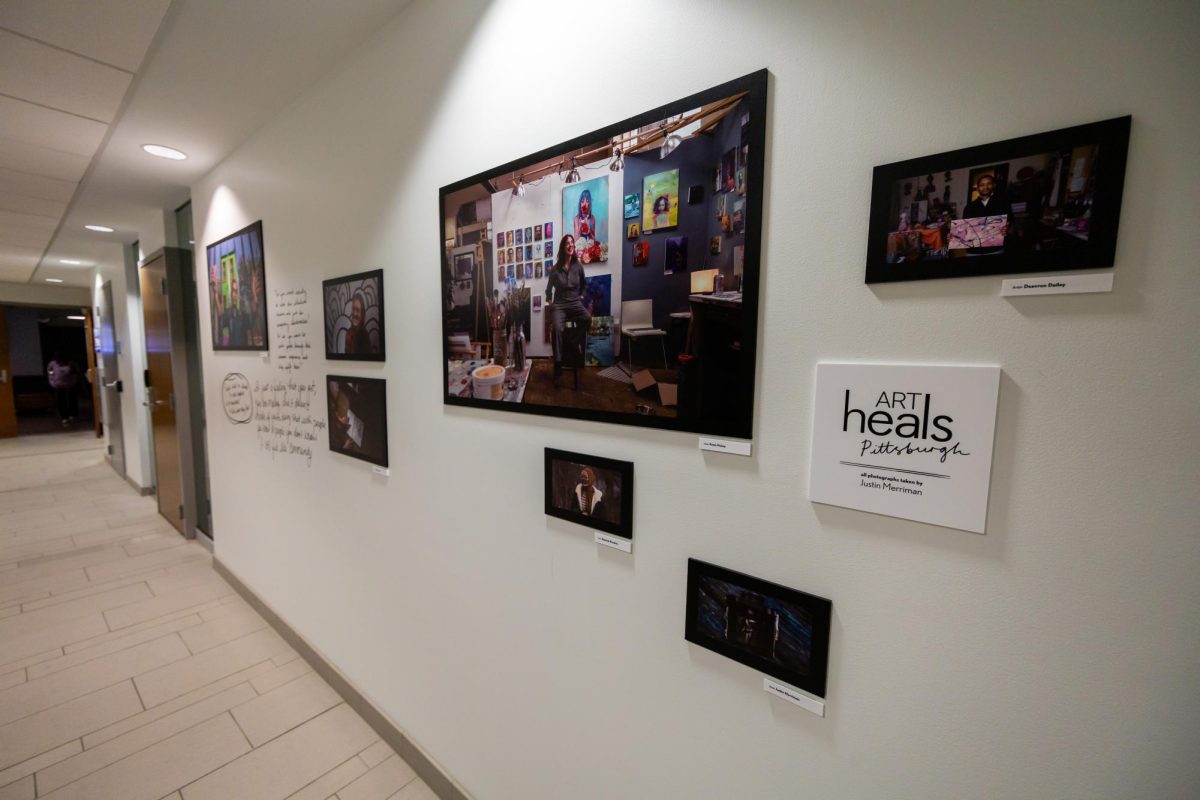Rappers focus lyrical talent on addressing social issues
May 28, 2014
Matt Hyre started making his own music under the name T.K. KAVI when he was in high school.
He wanted to create narrations through music that tell a story based on the ideals of conscious rapping — rap music with a political undertone and message.
“I think it is one thing to hear a politician at a podium, but to hear someone sing it and have an audience who actually wants to hear it is one reason I got into music,” Hyre, a sophomore marketing major, said.
Hyre said he incorporates conscious-themed ideas into his work by thinking about his music and planning it out in his head. He likes to create a narrative with his music that can serve as inspiration to others.
Conscious hip-hop or rap is a subgenre that works to create a voice of knowledge and awareness on an important social topic such as violence or discrimination. Kanye West, 2Pac, Macklemore and Lupe Fiasco are some mainstream artists known for their conscious music.
Jonathan Rosenfeld, who goes by Max, a junior urban studies major, said Hyre’s music analyzes all types of people and their motivations.
Hyre’s songs aren’t limited in scope, Rosenfeld said, but universal in their ability to relate to the whole human condition.
Hyre said his song “Idle Mouth” discusses the difference between an idle mouth — a person who talks a lot but doesn’t say much — and an ideal mouth — a person who speaks of important messages that need to be heard.
Hyre references well-known artists, such as Aretha Franklin, in his song because he said Franklin uses her music to emphasize respect for women. Hyre said he thinks conscious music is important because “if artists just sing about drugs and women, then there isn’t going to be respect or bigger ideals within the realm of rap.” Many of his other songs include pop-culture references as well.
Hyre chose the name T.K. KAVI as an acronym that stands for “The Kid Kills and Vibes Instrumentals” because he’s released two albums that transition from light to dark through his use of sound, lyrics and ideas. Hyre said both albums start out more carefree but get more serious as they progress.
The albums are currently out under the name T.K. KAVI. His first album — Fast Times at Autumn Ridge — touches upon themes of growing up, and Hyre’s second album, Premature Evaluation, is about being judged prematurely without being given a chance to represent yourself.
Andrew Lotz, a political science professor who teaches a class at Pitt on politics and pop culture, said conscious music goes back many decades.
Lotz pointed to the Great Depression-era “highly politically conscious” hit “Brother Can You Spare a Dime,” which tells a story about the era’s social issues and everyday life.
Lines from the song such as, “They used to tell me I was building a dream/ With peace and glory ahead/ Why should I be standing in line/ Just waiting for bread,” were important to the American people during this era marked by despair.
“Winds of Change,” released in 1990 by Scorpions, is an example of conscious music in the rock genre. The song references the end of the Cold War, the fall of communist-run governments and hope during high-pressure conditions. The song especially resonated with Germans, who made it an anthem for the reunification of their country, Lotz said.
Lotz said “Winds of Change” was corporately accepted as it was frequently played on the radio and throughout Germany as an expression of the political atmosphere during a time of change. According to Lotz, the mass popularity of the song is different than a single person who may seek out a conscious song that shares that person’s beliefs or even a song that may motivate a person to change their beliefs.
“As long as music has had words, it has included politically conscious ideas, but we just tend to think about it when mass exposure causes people to see it and expose it even more,” Lotz said.
While political rap has its supporters, not everyone favors the genre.
Rosenfeld said although conscious rap is important, it isn’t necessarily superior to other kinds of rap.
“A song that literally talks about what it is like to live in the ghetto or even a party song is still a form of awareness and is an important part of our culture,” Rosenfeld said.
Rosenfeld emphasized that songs that aren’t labeled conscious by critics can still have wisdom and address important issues — they just do it in a different way.
Rosenfeld referred to the popular rap artist Kendrick Lamar and his song “Ignorance is Bliss” with the lines, “The critics are calling me conscious/ But truthfully, every shooter be callin’ me Compton/ So truthfully, only calling me Kweli and Common?/ Proves that ignorance is bliss.”
“Just because a rapper uses big words doesn’t make him conscious. It is about the message,” Rosenfeld said.
Additionally, a song like Macklemore and Ryan Lewis’ “Same Love,” — a song on accepting same-sex relationships— can become a big hit because the message is strong, Lotz said.
Though he is still in school and does not have much time to focus on his music, Hyre said he thinks this type of music is important, so he balances as busy schedule.
Hyre juggles school, his music career and building a graphic clothing line called Fractals Worldwide by scheduling college courses that help him work on his passions.
He said he would not have gained the contacts, made the connections or received the help necessary from his professors if he had dropped out of college to focus on his music.
“I think that Pittsburgh’s conscious rappers are taking strides towards a better rap image. They may not be the biggest strides yet, but they are definitely going in the right direction,” Hyre said.







